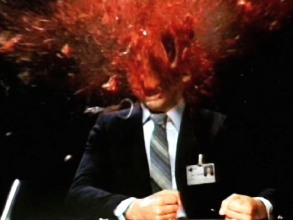
After years, probably decades, of dismissing why? questions as irrelevant and pointless—especially in regard to human behavior—I’ve finally found a use for them!
The problem with why? questions is that we almost always ask them in the wrong direction. We ask them backward instead of forward.
We ask why something that happened happened the way it did. We ask why people are the way they are or behave the way they behave. We ask why we are the way we are. We’re looking for explanations, rationales, reasons, or maybe even excuses. But those questions can’t really be answered, at least not with any degree of certainty. We simply don’t have, and never will have, all the information. We don’t even have all the information about what’s going on right this second, let alone anything that happened in the past.
The other problem with asking why? about what already happened is that it involves spending a lot of time looking backward. Our heads get stuck in the past searching back there for answers to questions about our present or even our future. All we can expect to come up with is a facsimile of an answer and not even a reasonable one.
Asking “Why?” forward instead of backward, however, is actually useful. More than that, it can be revelatory.
- Is there something you want to do or someplace you want to go? Why?
- Is there a decision you’re trying to make? Why are you considering it?
- Is there a goal you’re working toward? Why?
- Is there a habit you’re trying to start? Why?
- Is there a change you’re thinking about making? Why?
- Is there something you want to get or have? Why?
The list goes on.
Don’t stop with asking why? just once. If you keep asking why? repeatedly, you’ll eventually get to the last answer. Then you’ll know something you may not have known before. You’ll get closer to the heart of what’s at stake. You’ll be in a better position to decide what to do.
The backward why? is just a habit of thought. It can’t take us anywhere new. It has no surprises. The forward why? is where all the action is. It can dissolve limits and barriers. It can open up our world.



